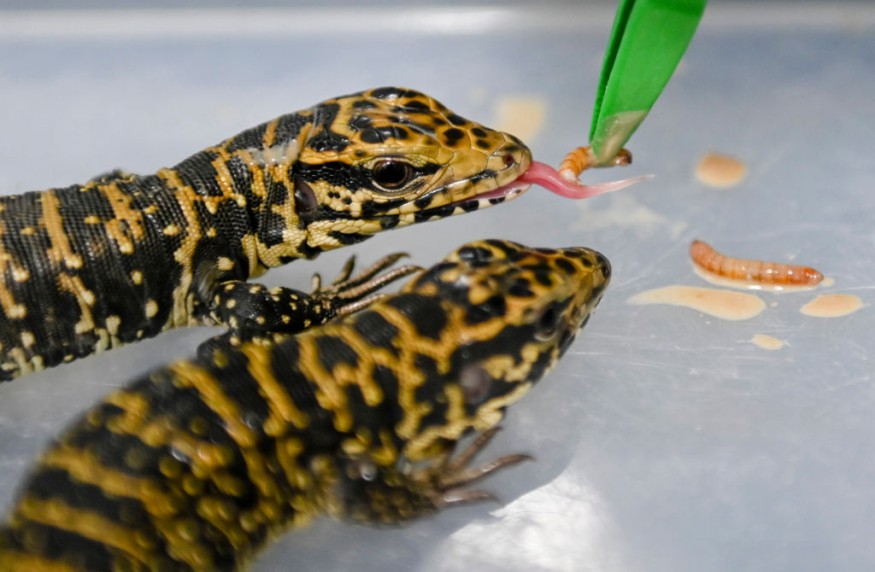A Florida man Sid Pennington has spent his retirement days single-handedly trapping the invasive species of Argentine black and white tegu lizards west of the city of Fort Pierce, Florida.
The 60-year-old retiree considers himself as being a reptile guy and enjoys his time capturing the reptiles.
Wildlife Hobby

Some individuals spend their retirement days relaxing at home or traveling across the world with the aim of fulfilling their bucket list.
However, the conventional notion of retirement is not the same as Pennington, who has made capturing the invasive lizards a wildlife hobby, as per USA Today.
So far, Pennington has successfully caught at least 117 tegu lizards from the wood areas and other neighborhoods on the outskirts of his Fort Pierce residence.
The achievement of Penning was significant enough that his skill was recognized by the US government.
In September 2021, the Florida Fish and Wildlife Conservation Commission (FWC) reportedly lent the Florida man 20 traps and recruited him to be a volunteer.
In 2022 alone, Pennington has trapped 31 reptiles as per the latest reports on Thursday, April 21.
Tegu Lizards and Invasion of Florida
The Argentine black and white tegu (S. merianae) are not native to Florida.
In fact, they are purportedly believed to have arrived in the state through the exotic pet trade or by other potential means related to human activities and migration.
According to the WUSF Public Media, tegus have been detected in 35 counties in Florida, including most parts of the greater Tampa Bay region.
In addition, new data shows that they have reached several North Florida counties and the state of Georgia.
The lizards have been labeled as invasive species due to their threat to the biodiversity and ecology of native wildlife, as per the FWC.
However, black and white tegus are not considered a threat to humans and they have been reported to refrain from attacking any creatures larger than them.
Also called the Argentine giant tegu or huge tegu, the lizards can grow up to five feet in length with an omnivorous diet with preferred meals, such as eggs, fruits, insects, and small animals like rodents.
Animal Laws for Tegus
Although the tegus have been perceived to be notorious for a long time, they are still subject to the anti-cruelty law of the country, particularly by the Animal Welfare Act (AWA).
However, the tegus are not protected in Florida as compared to other animals across the United States.
This is due to the laws and provisions of AWA, which primarily focus on protecting mammals such as cats, captive wildlife, dogs, guinea pigs, gerbils, hamsters, domestic livestock, non-human primates, and marine mammals, as per the Animal and Plant Health Inspection Service (APHIS) of the U.S. Department of Agriculture (USDA).
This entails that the invasive reptiles can still be killed while on private property but with the land owner's permission, said the organization.
In public lands, they can still be captured and taken down even without a hunting license or permit.
Regardless of the location, the Argentine black and white tegus must be killed in a humane manner.
© 2026 NatureWorldNews.com All rights reserved. Do not reproduce without permission.





